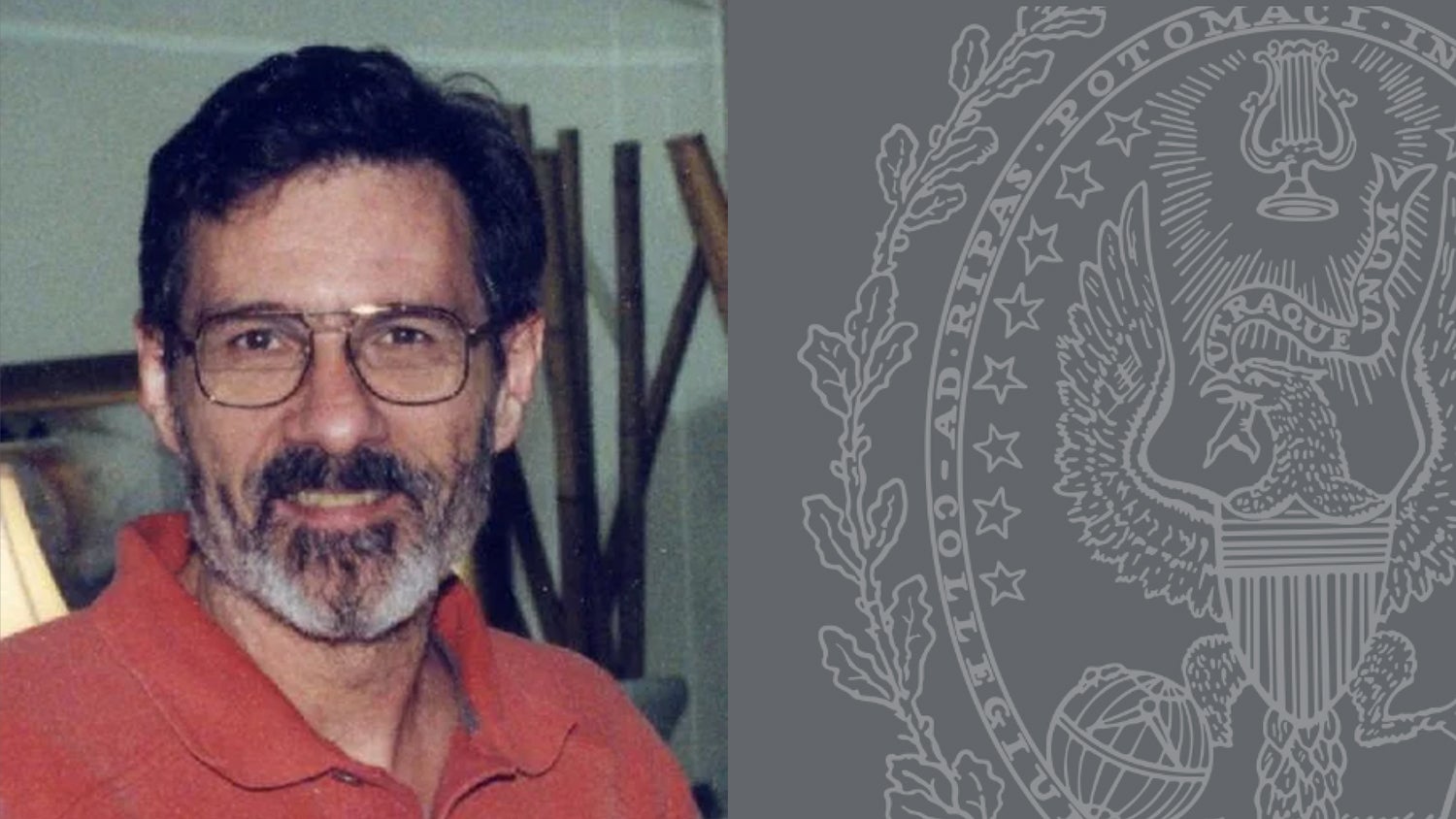The Georgetown Department of Pharmacology & Physiology includes 24 faculty and adjuncts, all dedicated to conducting research and teaching the next generation of experts in their field. A guide for them all is the legacy of Barry Wolfe, a pillar of the university’s biomedical community.
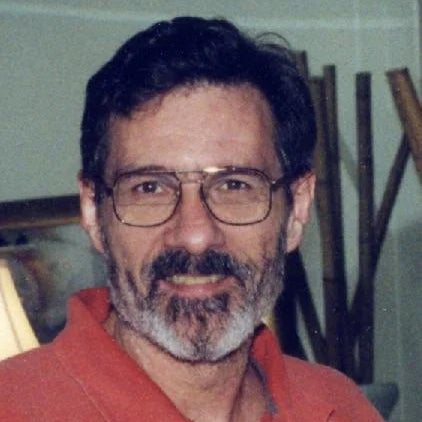
Barry B. Wolfe
Over his 30 years at Georgetown, Wolfe helped countless students to shape their studies and careers. He joined the university as an active researcher focused on molecular pharmacology, and almost immediately stepped up as director of the Pharmacology doctoral program (now the Ph.D. in Pharmacology & Physiology), a role he held until his death in 2019. He also created the M.S. in Pharmacology program in 2004 and was a founding member of the Interdisciplinary Ph.D. Program in Neuroscience. For six years in the 2000s, he directed all three programs simultaneously.
Where others might have been overwhelmed, Wolfe rose to the challenge and went well beyond what was expected of him. He was a constant source of support and inspiration who made complex topics understandable, inspired new approaches to research, and brought students and faculty together for trivia nights, movies in the department’s library, barbecues on the Medical Center Podium, and camping trips in Prince William Forest Park in Virginia.
Of about 180 Pharmacology doctoral graduates in the program’s 90-year history, Wolfe played a key role in training two-thirds of them. His legacy lives on in his former students and colleagues, many of whom have become scientific leaders in their own right.
Wolfe was “hands down one of the best teachers I ever had at any level at any institution,” said Patrick Forcelli, who earned his Ph.D. in 2006 and who this summer became the chairman of the Department of Pharmacology & Physiology. “It was from him that I learned all the ins and outs of running a program, and of helping students through the process.”
“He was a great friend to every single student,” said Maryna Baydyuk (Ph.D. ‘10), an assistant research professor in Georgetown’s Department of Biology. “Everyone would say, ‘If you have a problem, go talk to Barry.’”
A Transformative Teacher
Wolfe earned his doctorate in organic chemistry from the University of California, Santa Barbara, then shifted into neuropharmacology as a postdoc and eventually an assistant professor at the University of Colorado. He followed his mentor, Perry Molinoff, to the University of Pennsylvania, where he worked for most of the 1980s, rising to the rank of associate professor. It was at Penn that Wolfe, using a Commodore 64 8-bit computer to analyze nicotinic receptors, started collaborating with Georgetown’s Ken Kellar.
When the Georgetown pharmacology department hired a new chairman in 1988 and sought to recruit new faculty, Kellar leapt at the opportunity to bring Wolfe to the Hilltop. Wolfe joined the Georgetown faculty the next year as an associate professor.
“He thrived here,” said Kellar, who would go on to serve as department chair from 2016 to 2024. “He was my best friend here.”
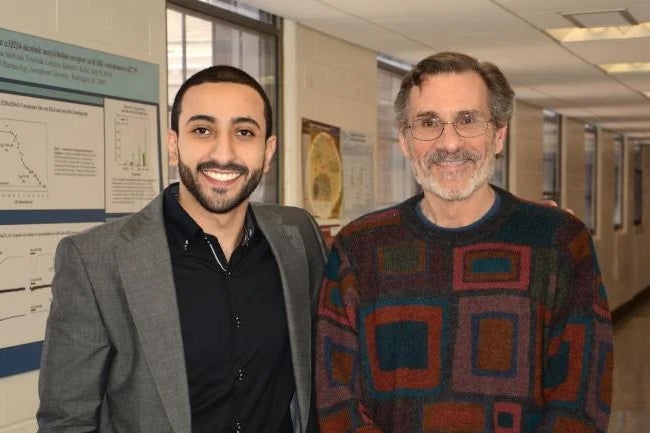
A pharmacology master’s student stands with Dr. Wolfe.
Wolfe had an immediate impact on the department, starting as director of the doctoral program in 1989. In the classroom, he impressed students and colleagues with his ability to teach complex topics such as pharmacokinetics.
“He understood it, and he could convey the information clearly,” Kellar remembered. “His intent was always to put it on the board, to make sure they understood it.”
“Barry was an exceptional mentor and teacher,” wrote Khalid Garman (Ph.D. ‘17), a visiting postdoctoral fellow at the National Institute of Arthritis and Musculoskeletal and Skin Diseases (NIAMS). “His unwavering support, coupled with his genuine passion for teaching and mentoring, truly shaped my academic experience and professional growth.”
Wolfe’s dedication to mentorship extended beyond classes. Alumni recalled that he helped them to refine their research ideas, prepare proposals, and get jobs after they graduated.
“People with all kinds of questions – science-related, program-related or personal … would come to him for advice,” Baydyuk said. “Listening to his calm voice, [he was] very encouraging and always inspiring, giving great advice throughout my career.”
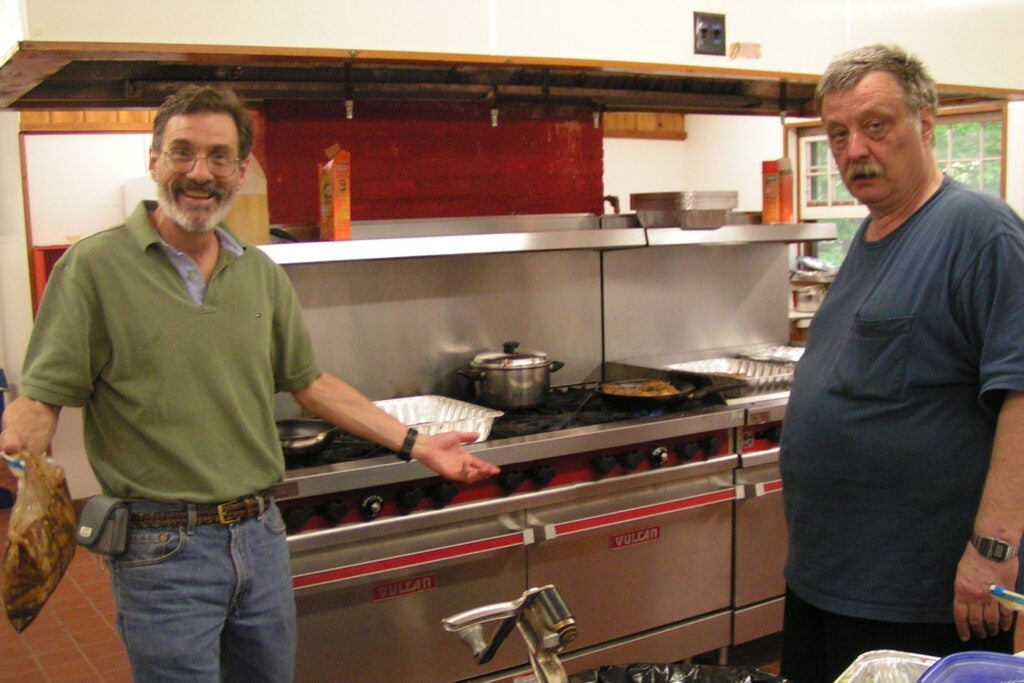
Dr. Wolfe and Professor Jarda Wroblewski man the stove during a department retreat. Wroblewski passed away in 2016.
In the Georgetown spirit of Cura Personalis, Wolfe cared about students’ wellbeing and enjoyment of the program. Garman recalled: “His support for his students went far beyond the classroom through his dedication to creating a vibrant student community with annual retreats, movie nights, and trivia events.”
Sarra Djemil (Ph.D. ‘18) said Wolfe helped her to balance family commitments with her academic career. He counseled her on degree options, helped her choose a lab she could work with while caring for her young children, and supported her in finding a job. As a postdoc, Djemil shared an office with Wolfe, and the two would sit together drinking coffee and chatting.
“He was just truly, truly a great person to be around,” Djemil said. “He was a kind human being and there to listen to anyone, and he just helped out everyone. He did above and beyond what his role was as the person in charge of the Ph.D. program at the time.”
Like others who studied with Wolfe, Djemil took his lessons of mentorship to heart. She is now a program director at the National Cancer Institute’s Small Business Innovation Research program, where she co-created a mentoring program that pairs companies with experienced biotechnology professionals to help bring products from the lab into clinical settings.
Wolfe also left an impression on colleagues and students through his hobbies. He built his own telescopes and took them around the world to eclipse viewings, star parties and other amateur astronomy events. And he took up pottery at nearby Glen Echo Park, sculpting pots and mugs that he gifted to friends in the department.
Wolfe’s handmade mugs “became some of the most treasured possessions that I have,” Djemil said.
A Growing Legacy
This year, the Department of Pharmacology & Physiology seeks to honor Wolfe’s legacy with a new fund set up in his name: the Barry B. Wolfe Director of Graduate Studies Fund. Forcelli explained that the department decided to name the directorship for Wolfe in recognition of his 30 years of leadership of the program and his dedication to his students and to the university.
The fund will facilitate career development events as well social gatherings like barbecues; pay for students’ conference travel; and provide protected time and resources to help the Pharmacology & Physiology Ph.D. program director to “run the program with the same care and dedication that Barry did,” Forcelli said.
The initial seed money for the new fund was provided by the department and by incorporating the activities and funds of the Barry Wolfe Student Travel Fund. The Student Travel Fund was established at the request of Wolfe’s wife, Jacqueline Crawley, after Wolfe’s passing in 2019, based on royalties from antibodies Dr. Wolfe developed in the 1990s. The department is grateful to Dr. Crawley for her support of the Student Travel Fund. Donations supporting the activities of The Barry B. Wolfe Director of Graduate Studies Fund will be matched by the department (up to $100,000) during the 2024-25 academic year. To support the activities of the fund, please visit the Department of Pharmacology & Physiology giving page.
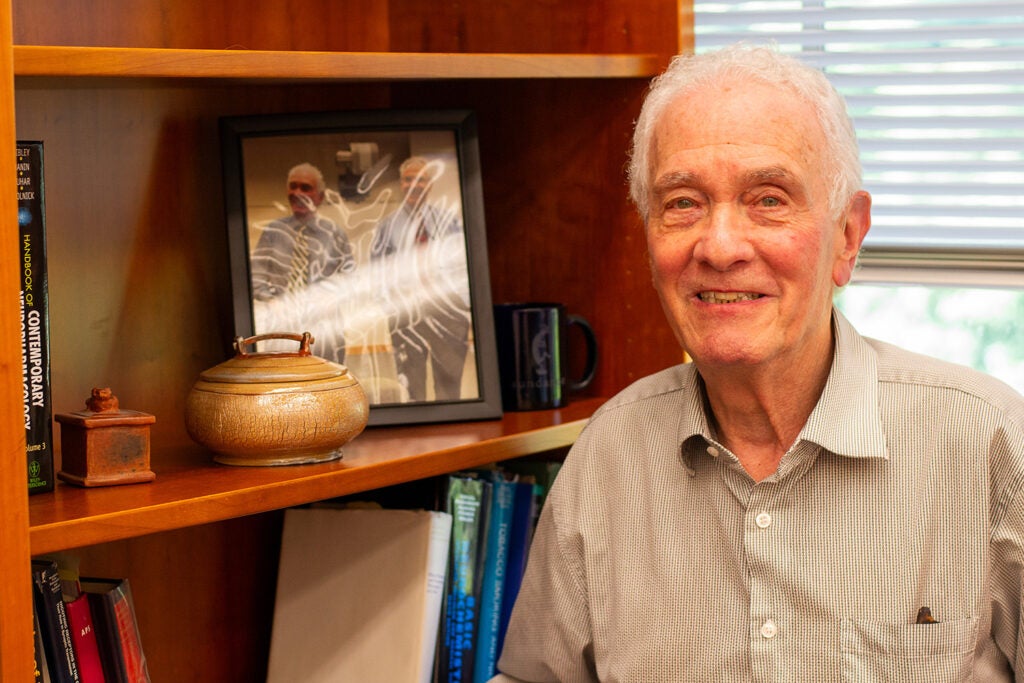
Ken Kellar, former chair of the Department of Pharmacology & Physiology, stands next to a gold urn created by Barry Wolfe.
“[Wolfe] cared deeply about students getting the training that they needed, while also ensuring that they enjoyed their time here. It’s such a privilege to be in a Ph.D. program and to have protected time for researching a topic that has captured your interest,” Forcelli said. “He helped people remember that this was also fun, even when things might be tough in the lab.”
“We all miss him,” Kellar said. The department is “a special place in many ways, and the reason it’s special is because of people like Barry.”

